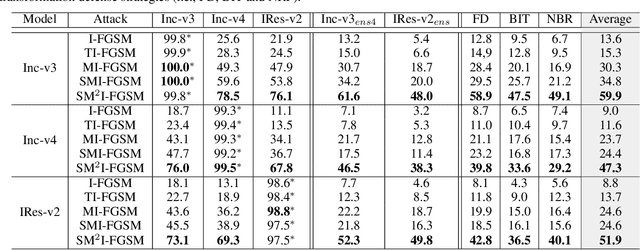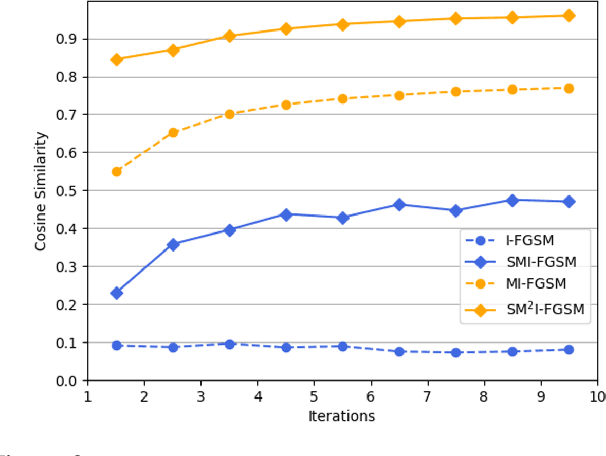Improving Adversarial Transferability with Spatial Momentum
Paper and Code
Mar 25, 2022



Deep Neural Networks (DNN) are vulnerable to adversarial examples. Although many adversarial attack methods achieve satisfactory attack success rates under the white-box setting, they usually show poor transferability when attacking other DNN models. Momentum-based attack (MI-FGSM) is one effective method to improve transferability. It integrates the momentum term into the iterative process, which can stabilize the update directions by adding the gradients' temporal correlation for each pixel. We argue that only this temporal momentum is not enough, the gradients from the spatial domain within an image, i.e. gradients from the context pixels centered on the target pixel are also important to the stabilization. For that, in this paper, we propose a novel method named Spatial Momentum Iterative FGSM Attack (SMI-FGSM), which introduces the mechanism of momentum accumulation from temporal domain to spatial domain by considering the context gradient information from different regions within the image. SMI-FGSM is then integrated with MI-FGSM to simultaneously stabilize the gradients' update direction from both the temporal and spatial domain. The final method is called SM$^2$I-FGSM. Extensive experiments are conducted on the ImageNet dataset and results show that SM$^2$I-FGSM indeed further enhances the transferability. It achieves the best transferability success rate for multiple mainstream undefended and defended models, which outperforms the state-of-the-art methods by a large margin.
 Add to Chrome
Add to Chrome Add to Firefox
Add to Firefox Add to Edge
Add to Edge